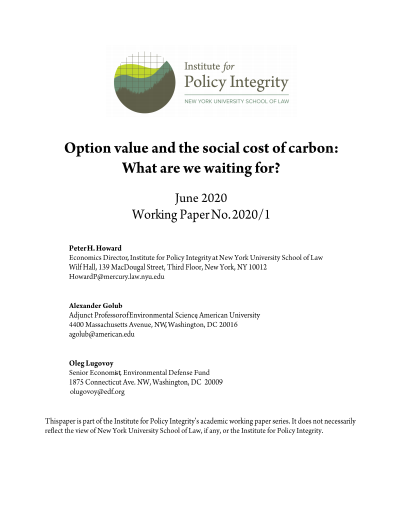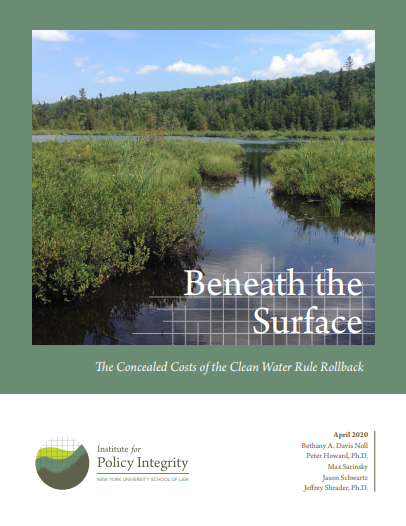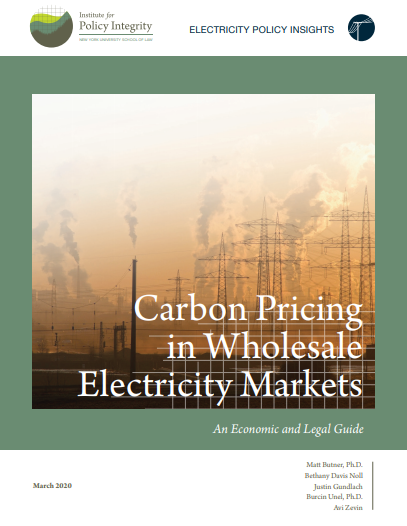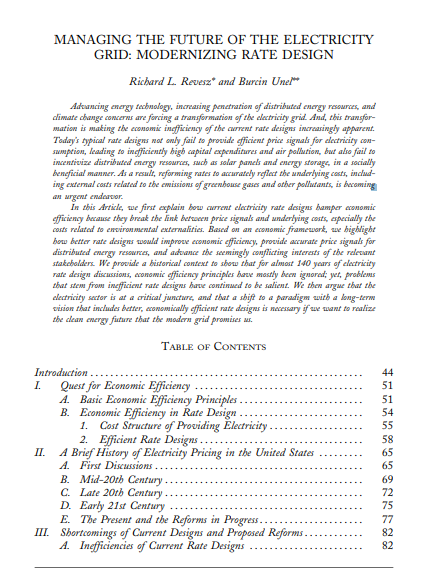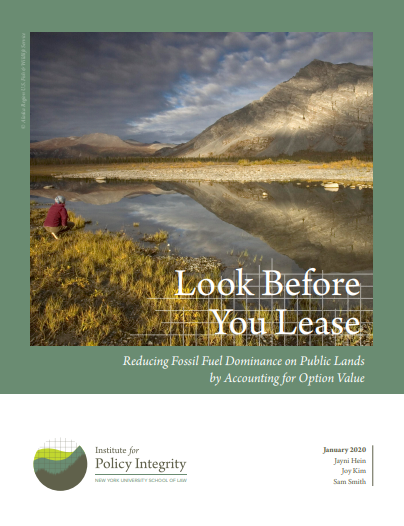The Institute for Policy Integrity produces a variety of publications. Our research reports develop in-depth research on our core issues, while our policy briefs and issue briefs provide focused analysis on more timely or particular topics. Our academic articles and working papers offer original scholarly research and analysis from established experts as well as fresh new voices.
Latest Publications
-
Option Value and the Social Cost of Carbon
What Are We Waiting For?
Scientists and economists have long recognized that significant uncertainties and irreversibility characterize climate change. And yet, the social cost of carbon (SCC), the preeminent policy tool to address climate change applied by the U.S. government, does not include the option value (OV) that arises due to these characteristics. We demonstrate a simple methodology for approximating the OV underlying the SCC using the Bachelier formula
-
Beneath the Surface
The Concealed Costs of the Clean Water Rule Rollback
In restricting the scope of the Clean Water Act through two regulatory rollbacks, the Environmental Protection Agency and Army Corps of Engineers claim that the estimated compliance-cost savings exceed the environmental harms (in the form of forgone benefits). Yet these analyses suffer from severe methodological flaws. And correcting the analyses would very likely show that the rollbacks are net costly to society, depriving the public of potentially billions of dollars in annual forgone benefits. As detailed in this report, the agencies’ failure to meaningfully assess the substantial harms that will result from their rollbacks violates both regulatory precedent and the agencies’ legal obligations.
-
Carbon Pricing in Wholesale Electricity Markets
An Economic and Legal Guide
This report explains how carbon-pricing rules in organized wholesale electricity markets can improve economic efficiency. It then explores the economic principles and legal requirements for RTOs, states, and the Federal Energy Regulatory Commission to consider when implementing a carbon-pricing rule in organized wholesale electricity markets. And it identifies several policy-design approaches that, to varying degrees, meet those economic principles and are likely to be found legally permissible.
-
Managing the Future of the Electricity Grid: Modernizing Rate Design
This article, published in the Harvard Environmental Law Review, argues that the electricity sector is at a critical juncture, and that a shift to a paradigm with a long-term vision that includes better, economically efficient rate designs is necessary if we want to realize the clean energy future that the modern grid promises us.
-
Look Before You Lease
Reducing Fossil Fuel Dominance on Public Lands by Accounting for Option Value
While the Trump administration’s goal of “energy dominance” has increased the public lands available for oil and gas development, no effort has been made to modernize the leasing system, even in the face of climate change. Our report explains how option value—which accounts for the informational value gained by delaying leasing decisions—can and should be factored into the Bureau of Land Management’s land use planning processes. Accounting for option value at multiple stages of the land use planning process would significantly improve BLM’s public lands stewardship, better protect the environment, and regain some of the economic and strategic advantages it has ceded to private developers. The report also describes case studies where BLM’s failure to consider option value has led to costly litigation and missed opportunities.

